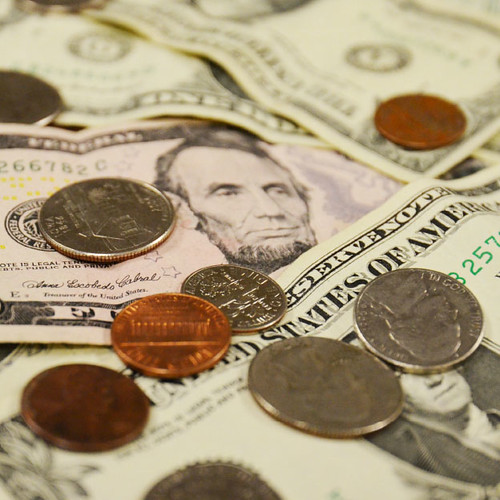How to Open a Bank Account as a Teen
Last updated March 26, 2025
Having a bank account is important for your financial independence, the safety of your hard-earned money, and building a financially secure future. Choosing a bank and opening an account can seem a bit intimidating, but by following these steps, you can do it with ease! We show you how to open a bank account as a teen.
*Note: Before making any big financial decisions, we strongly advise you to talk to a parent/guardian or a trusted adult. They can help you make informed choices that support your financial stability and success in the future.
(Lee este artículo en español aquí!)

Types of banks
There are three main types of banks you may want to choose from when opening your first bank account:
- Commercial banks. These are the most common types of bank, and they offer a wide range of services such as checking and savings accounts, loans, and credit cards. Examples of commercial banks include Bank of America and Wells Fargo.
- Credit unions. These are nonprofit organizations that are owned and controlled by their members. They offer many of the same services as commercial banks, but they usually have lower fees and better rates. Examples of credit unions include Navy Federal Credit Union and State Employees Credit Union.
- Online banks. Many of these banks don't have physical branches, but they offer many of the same services as commercial banks. They may offer higher interest rates on savings accounts and lower fees. Examples of online banks include Ally Bank and Capital One.
Features, benefits, and relationship to the community
Choosing a bank and the types of accounts you want to open is a big decision, so research is key! The Consumer Financial Protection Bureau, a federal agency, has a helpful activity for you to consider while you do your research. You’ll want to think about what kinds of features are most important to you before opening an account at any bank. Do you want a checking or savings account, ATMs close to your house, or a great online app? Are there fees associated with opening an account or a minimum balance you need to keep? These are all key questions to consider in your research.
You should also consider what kind of relationship any bank has with your community. Do you know other people who bank there? What has their experience been? You can also research different banks and credit unions in your area to find one that has a history of serving and supporting your community.
Prepare to apply
Once you've decided where you want to bank, you'll need to apply for an account, which will require some paperwork. The kinds and amounts of paperwork can vary depending on the bank, so be sure to check in about what's needed with a bank employee to get the correct information. You will most likely need:
- A form of ID (driver's license, passport, or state ID card).
- Your Social Security number (SSN) or taxpayer identification number (TIN).
- Proof of address, such as a utility bill or lease agreement.
- A school ID if you are under 18 years old.
- An initial deposit to open the account.
- A parent or guardian's signature and ID if you are under 18 years old.
- A document that shows your address if you are under 18 years old.
- Proof of income if the account requires a minimum balance.
If you are under 18, there are ways that you might be able to get a bank account without a parental signature. For example, if you are 16 or 17 years old, have proof of identification, and can show a source of income, some banks may offer you something called a “noncustodial” account. This means that you won’t need a parent or guardian’s signature to open and control the account. Be sure to ask your bank if they offer this option if it's something you're interested in.
Get banked!
Once you’re approved, you’ll need to deposit some money into the account to open it. Be sure you make yourself familiar with all the features of the account once you set it up: research how to make deposits, how to withdraw money when needed, and how to check your account balance. It's also important to learn about the fees associated with your account and how to avoid them. Talking with a banking professional can go a long way!
Have any questions about finding and choosing a bank? Text #Jobs to 33-55-77 to chat with one of our advisors. If you're using a mobile device, click here to have the text message set up for you! You can also check out all of our free resources on money management.